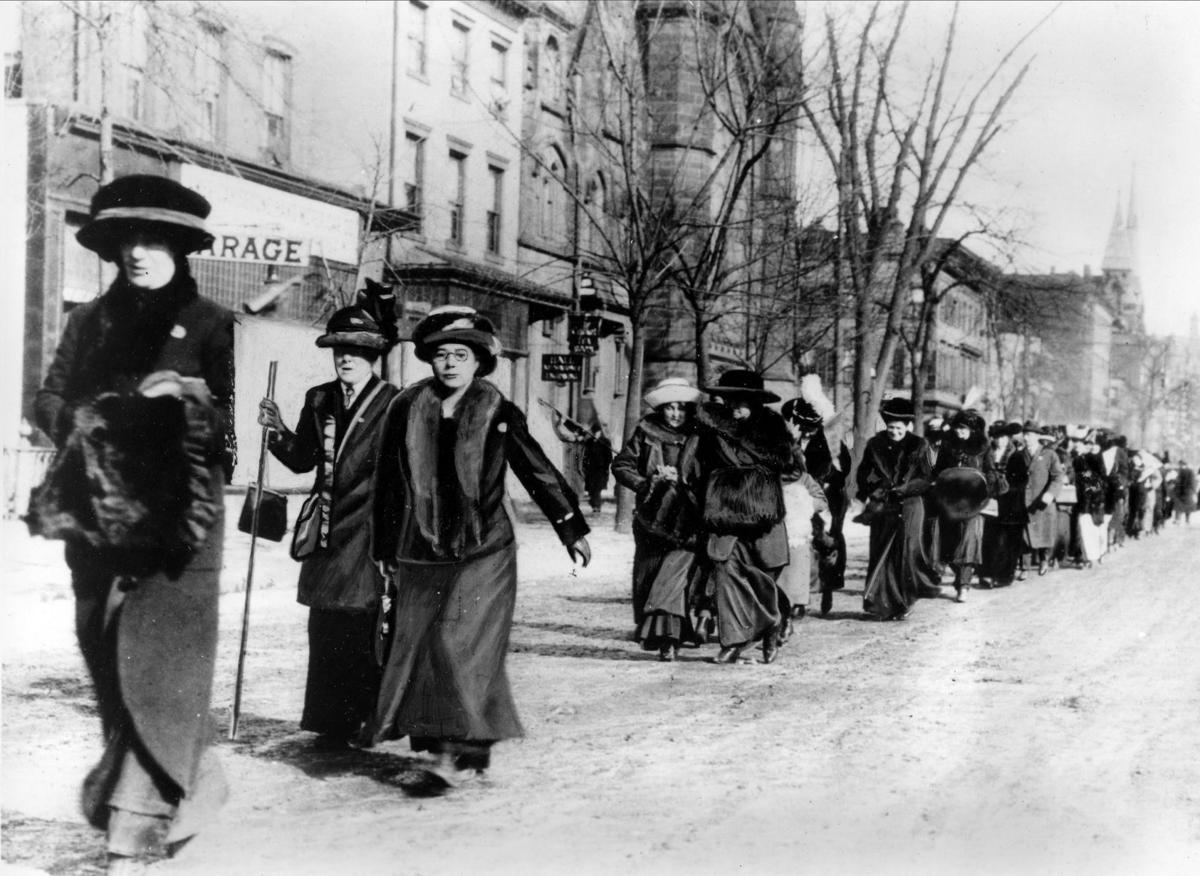Born in San Francisco on Jan. 13, 1865, Pauline Marie Schindler was the only child of Prussian immigrants, William and Rosalie Schindler.
When William, a career Army man, was transferred to Prescott’s Fort Whipple in 1884, 19-year-old Pauline accompanied her parents into the territory and taught school until she caught the eye of newspaper man William Owen “Buckey” O’Neill.
According to Pauline, that first meeting was not a success as Buckey “was so nervous he almost dropped his white cowboy hat in the dust ... I later discovered he was always like that when first meeting strangers, and very inclined to blush. That made him mad, which made him redder. Red cheeks and white hat were a contrast that night.”
Books have been written about Buckey O’Neill whose professions included serving as a reporter, editor and publisher; sheriff; probate judge; tax assessor; and mayor of Prescott, plus distinguishing himself as one of Theodore Roosevelt’s roughriders.
The couple married April 27, 1886. The following January, Buckey Jr. was born but he only lived a few weeks. Ten years later, Pauline and Buckey adopted 4-year-old Maurice.
Almost from the moment she stepped into the territory, Pauline became involved in the political arena. She became a member of the Women’s Christian Temperance Union, WCTU, while teaching school, and from 1895 until 1899, she was a member of the Yavapai County Board of Examiners overseeing teacher certifications. She also worked with Prescott’s Women’s Relief Corps that assisted destitute widows.
In 1898, Buckey died while serving with Roosevelt at the battle of San Juan Hill, leaving Pauline a wealthy widow. Through her associations in the WCTU, plus her friendship with suffrage activist Frances Munds, Pauline honed her skills as a leader.
In 1899, she was elected president of the Arizona Territorial Suffrage Association and, along with Frances and other suffragists, she continually lobbied the Legislature to pass the suffrage amendment.
In 1901, Pauline married Buckey’s brother, Eugene Brady O’Neill, who was an attorney and territorial legislator. The couple moved to Phoenix.
With her husband in the Legislature, Pauline canvassed the wives of other representatives and learned that most of their husbands were afraid of women obtaining the vote. Several Western states, including Arizona, also had to deal with saloon owners who expressed concern that if women could vote they would shut down the bars and saloons.
The suffragists began to focus their efforts on men who were more inclined to vote for the bill. They became politically savvy, shedding some of their ladylike demeanors.
Pauline and Frances were of two different personalities, which complimented their suffrage efforts. While Frances was more outgoing and often took the platform at rallies, Pauline worked in the background, knew how the Legislature worked, and quietly campaigned around the capital. In 1910, when the suffragists presented their platform before the Legislature, she argued women should not be taxed if they had no voice or representation in the government.
When Arizona became a state in 1912, it did so without the provision for women’s suffrage. Pauline and Frances set out once again to garner enough signatures for the suffrage bill to be placed on the ballot so that voters could decide the issue. They organized rallies and parades, spoke to organizations around the state, and went door to door seeking signatures. The Civic League of Phoenix was formed to promote the suffrage bill with Pauline serving as president.
The November 1912 election was not even close. The suffrage bill passed in Arizona by a 13,452 to 6,202 margin. Sixty-eight percent of the voters supported the bill with every county approving the amendment.
Pauline continued to work for the success of the suffrage amendment on the national level. In 1913, as president of the Civic League, she sent a telegram to Arizona’s U.S. Senator Marcus A. Smith demanding that he cast his vote for the amendment “giving universal suffrage to the women of the United States.” Smith demurred, saying he wished he could carry out the women’s wishes but he had “some obstacles which trouble me very personally with you ladies.”
The Civic League condemned Smith for his indecisiveness.
In 1917, Pauline ran for and won a seat in the Arizona House of Representatives, the first woman to represent Maricopa County. For two terms, she introduced bills that would support the 19th amendment, eliminate prostitution, avert forced marriages, and attain a minimum wage for women. She also sponsored a bill allowing the state to purchase the original governor’s mansion in Prescott, paving the way for another young woman, Sharlot Hall, to restore the building and turn it into a museum.
On July 16, 1917, Eugene O’Neill died by his own hand. Ill for several years, he left a note to Pauline saying he was concerned he was losing his mind and that his period of usefulness was over.
He had been a valued member of the Arizona Legislature. Early on, he and Pauline had often traveled to Washington, D.C., to further Arizona’s chances for statehood.
The U.S. Congress passed the 19th amendment on June 4, 1919. It was ratified on Aug. 18, 1920. The names attached to the Arizona bill to ratify the suffrage amendment included that of Pauline O’Neill.
Pauline remained active in organizations she had supported through the years. Along with the WCTU, the Women’s Relief Corps and the Phoenix Civic Club, she was a member and held offices in Prescott’s Monday Club, the Phoenix Women’s Club and the American Red Cross. Her efforts with the Women’s Relief Corps and the Red Cross later earned her commendation from the Red Cross for her work during WWII.
Pauline moved to California in 1924 and died there January 12, 1961.
Her accomplishments were always overshadowed by the two gregarious people who meant the most to her: Buckey O’Neill and Frances Munds.
Yet as a teacher, community leader, clubwoman, and suffragist, she did as much to promote women’s rights as did many other women yet to be recognized.





